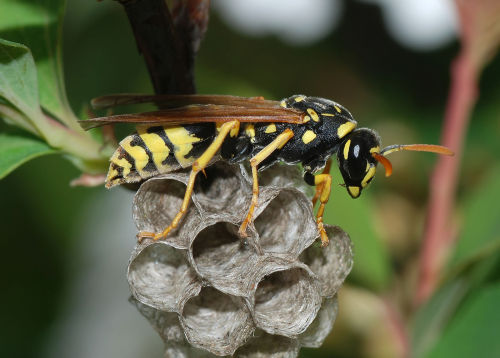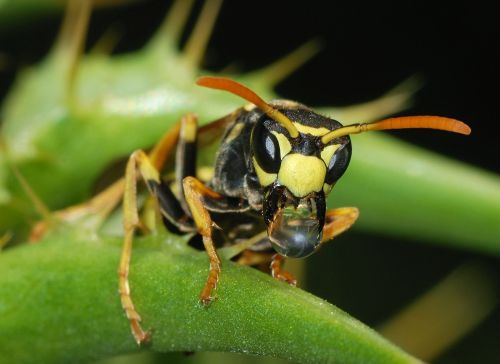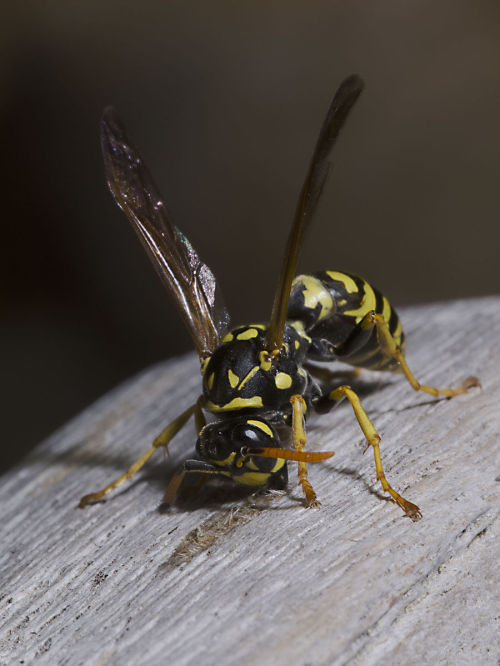European paper wasp (Polistes dominula)The European paper wasp is one of the most common and well-kn
European paper wasp (Polistes dominula)The European paper wasp is one of the most common and well-known species of social wasps in the genus Polistes. Its diet is more diverse than that of most Polistes species—many genera of insects versus mainly caterpillars in other Polistes—giving it superior survival ability compared to other wasp species during a shortage of resources.The dominant females are the principal egg layers, while the subordinate females (“auxiliaries”) or workers primarily forage and do not lay eggs. This hierarchy is not permanent, though; when the queen is removed from the nest, the second-most dominant female takes over the role of the previous queen. Dominance in females is determined by the severity of the scatteredness in the coloration of the clypeus (face), whereas dominance in males is shown by the variation of spots of their abdomens. P. dominula is common and cosmopolitan due to their exceptional survival features such as productive colony cycle, short development time, and higher ability to endure predator attacks.These wasps have a lek-based mating system. Unlike most social insects, 35% of P. dominula wasps in a colony are unrelated. It is considered an invasive species in Canada and the United States.P. dominula generally lives in temperate, terrestrial habitats such as chaparral, forest, and grassland biomes. They also have the propensity to colonize nearby human civilizations because man-made structures can act as great shelters and also are located close to the resources such as food. Overwintering founding queens, or foundresses, spend about a month in the spring constructing a nest and provisioning offspring, the first of which become daughter workers in the growing colony. Males are produced later, and when they start to appear, a few daughters may mate and leave their nest to become foundresses the next season.photo credits: Alvesgaspar, pjt56 -- source link
Tumblr Blog : cool-critters.tumblr.com
#polistes dominula#zoology#biology#biodiversity#science#wildlife#nature#animals#cool critters


